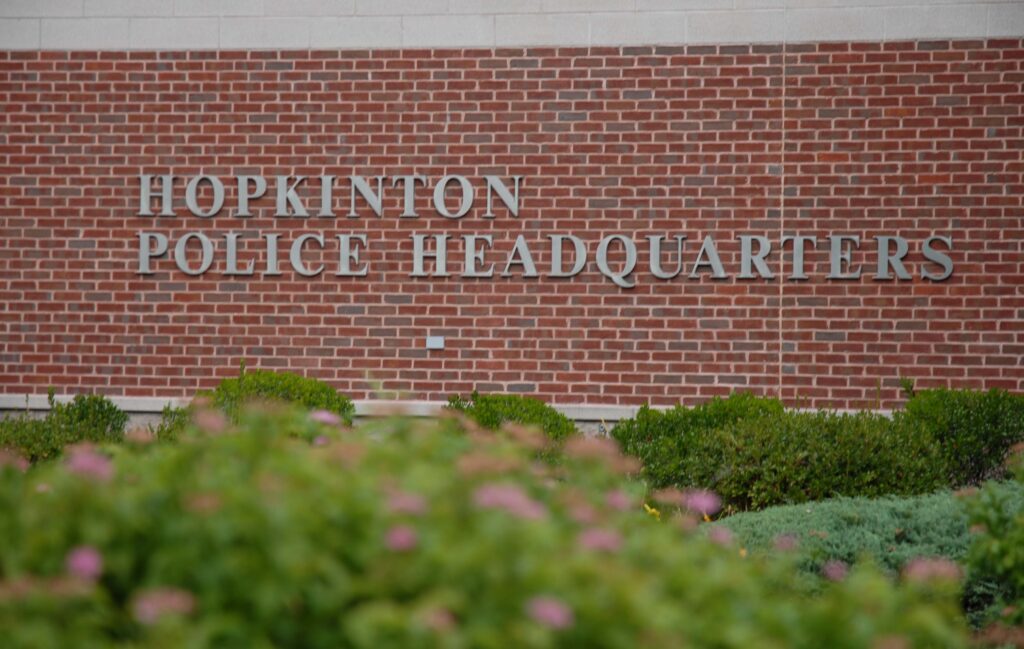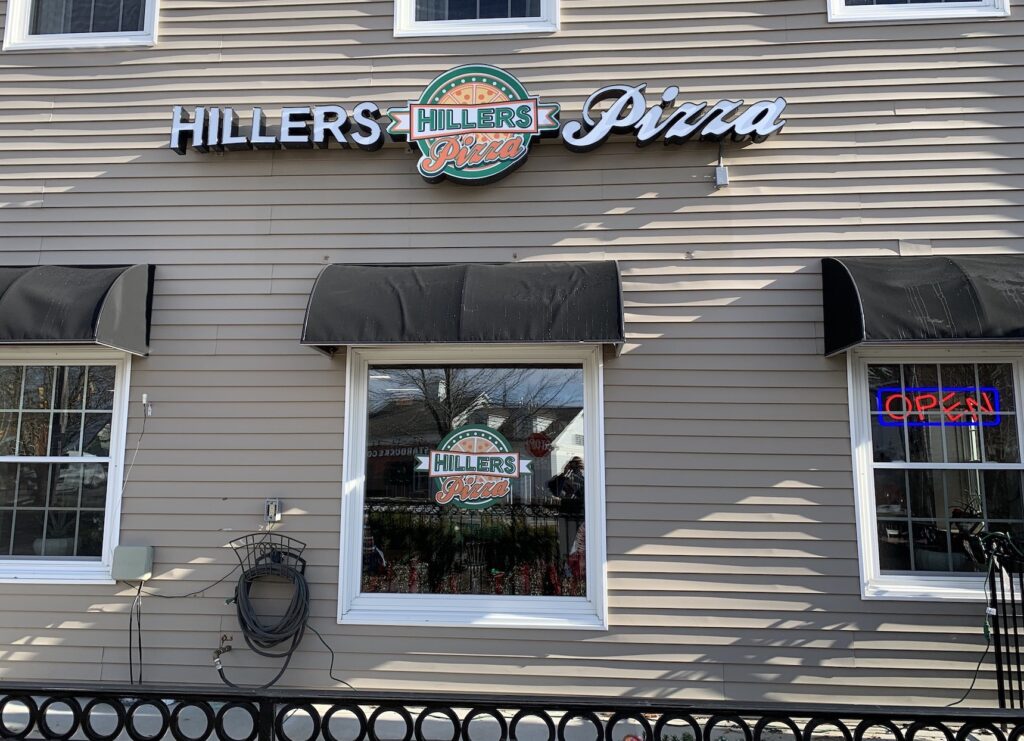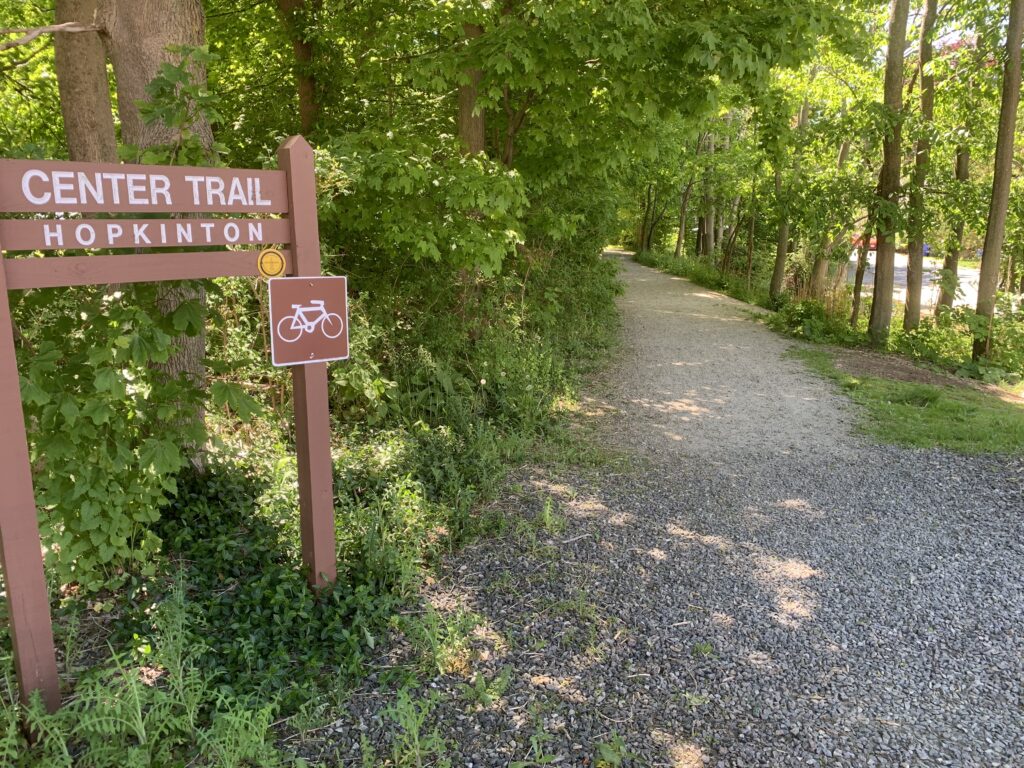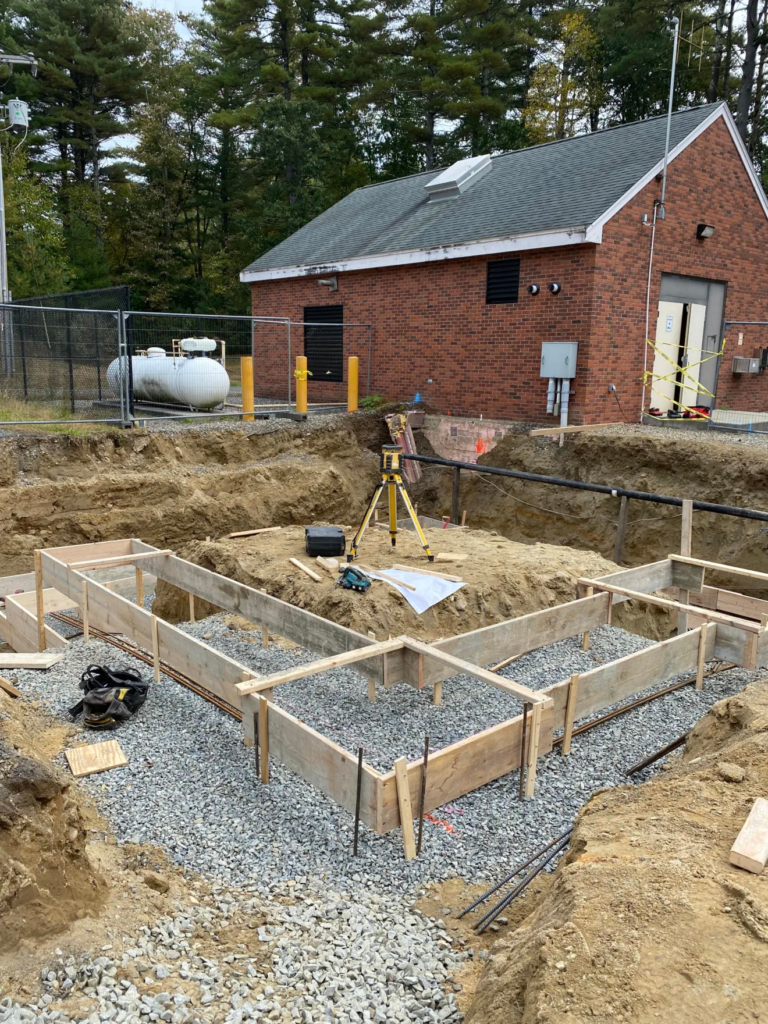Plans for an open space mixed-use development (OSMUD) at the site of a historic house at 83 East Main Street are moving forward after clarification from town officials that the developer already has a permit noting that the proper infrastructure exists for water and sewer to serve it. Developer Roy MacDowell hopes to begin construction in the late winter or early spring.
Three age-restricted units and the replication of the single-family home were approved by the Planning Board, and zoning allowed for it to be constructed by right. The site, part of the Village Center zoning subdistrict, is a small triangular plot at the corner of East Main Street and Legacy Farms Roads North, just west of Weston Nurseries.
MacDowell noted at Planning Board meetings over the past few months that the Historical Commission approved the razing of the house with the condition that it be replicated on the exterior edge of the property because the home and its foundation were in a state of deterioration. The Board of Appeals also approved a special permit in August allowing the home to be replicated despite the original building not having adequate frontage. MacDowell also confirmed that the house’s shingles contained asbestos, which he said would be removed properly.
Hopkinton Health Director Shaun McAuliffe earlier this month had raised concerns about the development having appropriate infrastructure to manage water and sewer needs for the development, as well as the ability to connect to the Clinton Street wastewater treatment plant, and said the project would not move forward without the Health Department’s approval.
However, in an interview via Zoom on Nov. 15, MacDowell noted that the initial permit from the Massachusetts Department of Environmental Protection (MassDEP) regarding water and sewer had been issued in July 2012 and that it was renewed in 2020. The Legacy Farms developer stressed the positive relationship he has had with the town’s boards, commissions and officials over the course of 15 years.
“We’ve always prided ourselves on maintaining a good working relationship with the town” since purchasing the property in 2007, he said. He noted that he has provided millions of dollars to the school system, contributed to road improvements and donated 500 of the property’s 730 acres back to the town for open space — all part of the host community agreement he signed with the town.
He added that he has not had previous interaction with the Health Department, because MassDEP issues the required permits.
“It’s not a local issue — it’s a state issue,” MacDowell said. “We don’t have things such as septic systems that would involve the Board of Health.”
In a letter dated Nov. 9, McAuliffe noted that there had been a meeting that day that included him, MacDowell and Assistant Town Manager Elaine Lazarus, where he said the project indeed had the proper permitting and that it can move forward as planned.
“The Health Services Department is issuing this clarification of the permitting and regulatory status of the 83 East Main Street parcel and the Legacy Farms Development in general,” the letter stated. “The Health Services Department believes that the appropriate water and sewer infrastructure is in place to provide service to the 83 East Main Street parcel. In addition, the 83 East Main Street property has the right to connect to the Clinton Street wastewater treatment plant based on the most recent Massachusetts Department of Environmental Protection (MassDEP) permit. Furthermore, Legacy Farms LLC, the Health Department, and the MassDEP have communicated regarding this matter.”
McAuliffe also previously noted the presence of asbestos in the historic home.
“[McAuliffe] mentioned the issue of the asbestos siding on the house,” MacDowell said. “Well, I’ve been saying it has asbestos siding for the past few years. It’s no secret.”
“We all know that you need a demolition permit,” he continued. “If you’re taking out a hazardous material — which asbestos is — you also need a permit from the Board of Health. I told him the reason we haven’t approached him yet is that we’re not ready to ask for a permit.”
“Legacy Farms LLC assured the Health Services Department that it or its successors would seek all appropriate approvals for the cesspool abandonment at 83 East Main Street and the asbestos removal associated with building demolition before any demolition work,” McAuliffe wrote in the letter. “We look forward to continuing our excellent working relationship during this process.”
MacDowell also refuted a previous claim by McAuliffe about three parcels on the former site of Weston Nurseries, where there were elevated levels of dieldrin, an insecticide that was widely used in the 1950s through the 1970s but was discontinued in 1974. McAuliffe previously said it was his understanding that MacDowell had owned the property when contaminated soil was transported to other properties. However, MacDowell stressed that he did not own that property at the time, and that “the soil had been removed and sold by a site contractor to a couple of homes, unbeknownst to the owner.”
MacDowell said that once that removal was discovered, he was told that the soil was brought back to the original site, as the town requested. He said he had no involvement in this process because it was no longer his property.
“Mr. Roy MacDowell Jr. reminded me that Baystone Development/Legacy Farms LLC had already sold the parcels within Legacy Farms from which soils were removed to a third party,” McAuliffe stated in the letter. “Therefore, neither Mr. MacDowell nor Baystone Development/Legacy Farms LLC had any involvement with the removal of these soils.”
MacDowell added that he reached out to McAuliffe “a few times” over the past week to clear up any misconceptions he may have had about the situation, but that his calls and emails had not been returned. This prompted him to reach out to the Town Manager’s office and led to the meeting on Nov. 9 to clear the air.
Asked why he sought to develop the 83 East Main Street property, MacDowell explained that it is the last open parcel at Legacy Farms, so developing it would fill in the remaining piece of the puzzle, so to speak.
He also noted an affinity he had for the site since the 1970s when it was part of Weston Nurseries and purchased it when it came up for sale.
“Weston Nurseries was a pristine, stellar nursery,” he said, noting that tours were held to admire topiary gardens. “It was like Disneyland almost. It was a beautiful, beautiful place, and I really admired it.”





















0 Comments